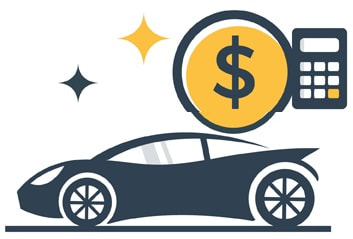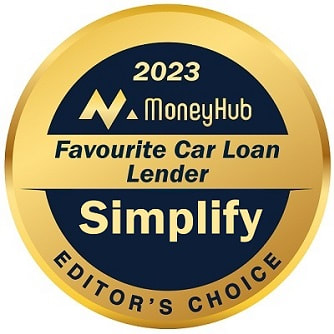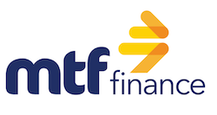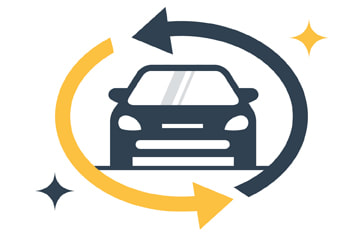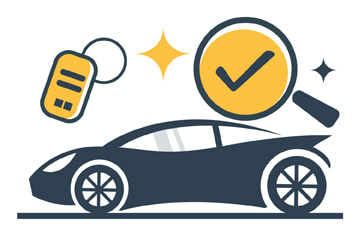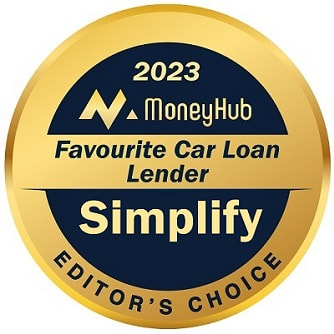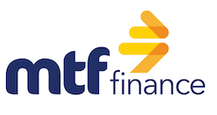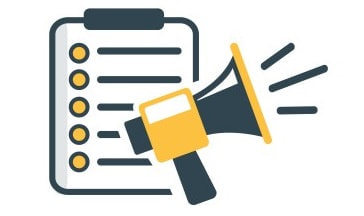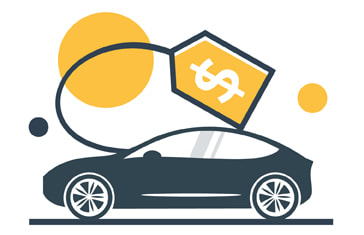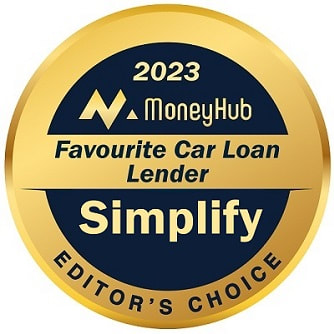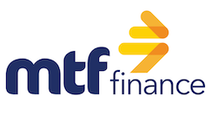How to Sell Your Car in New Zealand
Our guide explains everything you need to know about selling your car, how to sell your car for the highest price and must-know tips
Updated 29 December 2023
Looking to sell a car? Know this first:
Our guide covers:
Looking to sell a car? Know this first:
- There are two ways to sell your car - privately or through a dealership (cash offer or trade-in). You can get a better price if you sell privately, but it will require a significant amount of time and effort compared to selling to a dealership.
- Knowing how much your car can sell for relies heavily on your online research and vehicle desirability - these factors include the vehicle’s model, make, condition and car service.
- If you sell your car privatelty, make your car listing more appealing to potential buyers, make sure to prepare your car thoroughly, have all the necessary paperwork sorted and have great photos showcasing different angles of the car’s interior and exterior.
- There's a lot to navigate when it comes to selling a car; this guide is designed to walk you through the process and deliver the best results.
Our guide covers:
- Your Options - Selling Your Car Privately or Trading-In at a Dealership
- Preparing Your Car for Sale and Making it Attractive to Buyers
- Must-Have (and Should-Have) Information About Your Car
- Websites to Sell Your Car - Trademe vs Facebook Marketplace vs Turners vs AutoTrader vs Sell My Car Fast
- Completing the Transaction - Things to do After the Sale
- Frequently Asked Questions
Get a FREE Car Valuation in Seconds with Two Reliable Tools
- Don't undersell your car. We know getting a reliable car valuation can be problematic. To speed up the process, our car valuation research highlighted two tools that provide car valuations free of charge:
- We suggest trying Trade Me's Value My Car tool first, and then the BestCar tool. Both are free of charge.
- If you still need more data points, we suggest searching Trade Me's motoring section to see current prices from other sellers to get an indication of valuation.
- MotorWeb and CarJam also provide (paid) valuation and vehicle history reports - our CarJam Review and CarJam vs MotorWeb Reports has more detail.
- Buying another car? We continue to be made aware of rip-off car finance sold to everyday New Zealanders at car yards - our car finance comparison has everything you need to know about the cost of borrowing so you're prepared upfront.
- Disclaimer: We have no relationship with Trade Me, BestCar or any other car valuation service provider listed on this guide. We suggest getting a number of car valuations before agreeing to either sell or buy a car - estimates range, and the first car valuation you're given may not be the highest (if you're selling a car) or the lowest (if you're buying a car).
|
Christopher Walsh
MoneyHub Founder |
Considering a new car purchase on finance? Avoid costly mistakes with MoneyHub's Top Car Finance Options.
|
Our Three Trusted and Affordable Car Lenders Committed to Fast Quotes:
Your Options - Selling Your Car Privately or Trading In at a Dealership
Deciding whether to sell your car yourself or trade-in can be a tough choice to make. Some people prefer the simplicity of trading in their current vehicle for another at a dealership, even though they may not get as much money. Others may prefer putting more effort to find an appropriate buyer and negotiate for a better price.
Both options have advantages and disadvantages; we make these clear below to help you decide what's right for you.
Both options have advantages and disadvantages; we make these clear below to help you decide what's right for you.
Option 1 - Selling your car yourself
Pros:
Cons:
To avoid such things from happening:
- More money for your car - selling privately means that the price you sell at can be much higher than wholesale price depending on the desirability of the car for the potential buyer/s and your negotiation abilities. If you have made any touch-ups, customisations or repairs, that can also be factored into the sale price.
- Learning opportunity - although it may be more difficult to sell a car privately, if you are planning to sell cars regularly, having some experience selling your own car can help you gain some knowledge about the process.
- You set the price - there are many factors that help determine what the car sale price should be. One of the biggest variables is mileage - particularly for older cars with more than 100,000 km on the odometer. Often these aren't highly sought after by buyers, which means that dealerships will offer a significantly lower price than what you expect to get. This is not the case if you choose to sell privately. With private buyers, you have the power to set the price.
Cons:
- Considerable effort is required - when you sell a car yourself, there are a lot of things you need to do, including placing ads, liaising with strangers at odd hours, cleaning your car inside and out to make it more appealing to interested buyers and arranging test drives or car viewings. You may also need to have a mechanic check for any mechanical issues that need addressing. These can take a significant chunk of your time and money.
- Beware of scammers - with any high-value transactions, there are opportunistic criminals looking for private car sales as a way to earn some quick cash. In doing so, they will try to separate you from your car, money or both. Your safety (financial and personal) is always the number one priority.
To avoid such things from happening:
- Always arrange to present the car at a public location and never go alone.
- If the buyer requests a test drive, always go with a car and get a friend to join you.
- Never meet the buyer at their place of residence or your own either - to avoid walking into a trap or disclosing your own home address.
- Never release the car to the buyer until you have received the cash in your hand or a bank transfer to your account is confirmed.
- If the buyer states that he is overseas, do not engage further.
Option 2- Trading in your new or used car
Pros:
Cons:
- Convenience - many people struggle to sell a vehicle privately due to various reasons. Selling a vehicle on your own takes up a lot of your time (preparing the car to be more appealing to interested buyers, liaising with buyers through phone, text, email) and effort (searching for buyers and placing ads or listing your car on marketplaces) and safety concerns (chances of meeting scammers). Trading in your car at a dealership avoids all of these.
- Down payment assistance - in most cases, dealerships may make an offer for the vehicle on the spot and take the car off your hands on the same day. When you trade-in your car to a dealership, they will apply any positive balances (or equity) to the purchase price of a new car. This means that you can then use that trade-in amount as the down payment on a new car, allowing you to drive a new vehicle with little to no upfront money out of your pocket.
- Trade and forget - if you sell your vehicle "as is" privately to another party, the buyer may come back and ask you to pay for any mechanical issues of the car that may arise. This can put a lot of pressure (and frustration) on you as the seller. Instead, when you trade in a car with a dealership, once the transaction is complete, the dealership will assume all the responsibility related to the mechanical trustworthiness of the vehicle - that way, they can sell your car to the next potential buyer. And so, once you trade-in your car, a dealership will not contact you and ask for financial assistance to fix any mechanical issues.
Cons:
- Trade-in price - there's no doubt that trading in a car is much more convenient than selling it yourself. But in return for this time-saving comes at a cost: you may end up getting less money for your car. As you should know, the primary intention of any car dealership is to make a profit. For them, one of the easiest ways to turn a quick profit is to purchase used vehicles at a discounted price and then resell at a price higher than what they originally paid for. This is perhaps the biggest disadvantage when it comes to trading in a used vehicle. At best, you should probably expect to get the vehicle's wholesale value or close to it. Getting more may require you to haggle with the salesperson, if you know the true value of your car and what it's worth.
- Money you spend on maintaining the car is not considered - when a used car is traded in, dealerships generally won't take into consideration how much money you've spent on ongoing maintenance - things like new tires, repair work or tune-ups. This means that those investments or expenses you've incurred won't be factored into the trade-in amount.
- The Dealership may not want the car - there are two main reasons why a dealership may not want a car. First, if the vehicle is out of favour with buyers, i.e. the desirability of the car. For whatever reason, if it is the case, then it will be harder for the dealership to sell later on. Second, if the dealership already has a lot of similar cars in their inventory. This makes sense - if a dealership has five Toyota Camrys that haven't been sold, there's less desire to buy another one. If the dealership decides to take in the car, this may significantly impact its trade-in price.
Get a FREE Car Valuation in Seconds with Two Reliable Tools
- Don't undersell your car. We know getting a reliable car valuation can be problematic. To speed up the process, our car valuation research highlighted two tools that provide car valuations free of charge:
- We suggest trying Trade Me's Value My Car tool first, and then the BestCar tool. Both are free of charge.
- If you still need more data points, we suggest searching Trade Me's motoring section to see current prices from other sellers to get an indication of valuation.
- MotorWeb and CarJam also provide (paid) valuation and vehicle history reports - our CarJam Review and CarJam vs MotorWeb Reports has more detail.
- Buying another car? We continue to be made aware of rip-off car finance sold to everyday New Zealanders at car yards - our car finance comparison has everything you need to know about the cost of borrowing so you're prepared upfront.
- Disclaimer: We have no relationship with Trade Me, BestCar or any other car valuation service provider listed on this guide. We suggest getting a number of car valuations before agreeing to either sell or buy a car - estimates range, and the first car valuation you're given may not be the highest (if you're selling a car) or the lowest (if you're buying a car).
Preparing Your Car For Sale and Making it Attractive to Buyers
When you decide to sell your car, it's essential to ensure that it is 'at least' visually appealing to interested buyers. Pictures generate buyer interest. Good photos make a huge difference. If a buyer sees a picture of a dirty car, they're not going to want to buy it. Make sure your car is presentable and has been given a good clean inside and out. If adding a few dollars to cleaning the car means adding a few hundred dollars to the final sale price, it's a safe investment of time and money.
However, in addition to the car's appearance, there are other things to consider when preparing your car for sale. We list the most useful below:
1. Car service
If you can afford to get the car serviced, you should do it. Buyers will feel more reassured if they know the car they're about to buy has been regularly maintained and up to date at manufacturer-recommended intervals. Even better if you have car service receipts and/or any maintenance records. This will help them reduce the chance of significant car part failures and avoid costly repairs. Determining how much car servicing to do depends largely on your budget and how much money you think this will help raise the final sale price. Simple car servicing checks may include changing oil, testing brake fluid, checking the cooling system, lubricating door hinges and many more.
2. Car license (also known as rego)
If you sell an unlicensed car, you will be responsible for any licensing fees owed until the date the buyer has registered it, i.e. after the car purchase. Buyers will be required to pay the licensing fees from the date they buy the vehicle.
3. Car plate registration
Car plate registration is a one-off fee to add a vehicle's details to the Motor Vehicle Register. Once added to the register, number plates will be issued. Don't cancel the registration if you're selling your vehicle to someone else who will use it on the road. However, if you sell an unregistered vehicle, it's important to inform the buyer that the vehicle is unregistered before they buy it. That way, they know to register the vehicle first to put the vehicle into their name.
4. Road Users Charges (RUC)
Road User Charges (or RUC) are charges that need to be paid for diesel vehicles. These go towards maintaining and improving the road network. If your vehicle's RUC is overdue at the time of sale, you as the seller are committing an offence under the Road User Charges Act 2012. In this situation, the newly registered person, i.e. the buyer, may be responsible for the outstanding fees. When you're selling privately, our recommendation is to use the unpaid RUC as part of setting or negotiating the sale price with the buyer.
5. Warrant of Fitness (WoF) or Certificate of Fitness (CoF)
If the vehicle's WoF or CoF has expired for more than one-month-old, you as the seller must inform the buyer that the WoF or CoF isn't current. For your protection, you should ask the buyer to confirm in writing that they accept the WoF or CoF isn't current and that they won't use the vehicle on the road except to take it somewhere for repair or inspection. For more information, visit the NZTA website.
6. Selling the vehicle "as is."
The most common problems car buyers face when buying vehicles privately include:
7. Set your sale price
Determining the price you want to sell your car at is both a science and an art. It's important to research similar cars online to understand the price range for cars of similar make, model, age, and condition before you decide. After knowing the range, getting a high, average or low sale price of that range will depend on your negotiation ability and the buyer's desirability of the vehicle. It's good to set a minimum amount you'll accept beforehand; that way, you won't end up negotiating with yourself or waste time haggling with buyers that 'low ball' you with an unreasonable offer. Our complete guide for car valuations goes into this topic in more detail.
However, in addition to the car's appearance, there are other things to consider when preparing your car for sale. We list the most useful below:
1. Car service
If you can afford to get the car serviced, you should do it. Buyers will feel more reassured if they know the car they're about to buy has been regularly maintained and up to date at manufacturer-recommended intervals. Even better if you have car service receipts and/or any maintenance records. This will help them reduce the chance of significant car part failures and avoid costly repairs. Determining how much car servicing to do depends largely on your budget and how much money you think this will help raise the final sale price. Simple car servicing checks may include changing oil, testing brake fluid, checking the cooling system, lubricating door hinges and many more.
2. Car license (also known as rego)
If you sell an unlicensed car, you will be responsible for any licensing fees owed until the date the buyer has registered it, i.e. after the car purchase. Buyers will be required to pay the licensing fees from the date they buy the vehicle.
3. Car plate registration
Car plate registration is a one-off fee to add a vehicle's details to the Motor Vehicle Register. Once added to the register, number plates will be issued. Don't cancel the registration if you're selling your vehicle to someone else who will use it on the road. However, if you sell an unregistered vehicle, it's important to inform the buyer that the vehicle is unregistered before they buy it. That way, they know to register the vehicle first to put the vehicle into their name.
4. Road Users Charges (RUC)
Road User Charges (or RUC) are charges that need to be paid for diesel vehicles. These go towards maintaining and improving the road network. If your vehicle's RUC is overdue at the time of sale, you as the seller are committing an offence under the Road User Charges Act 2012. In this situation, the newly registered person, i.e. the buyer, may be responsible for the outstanding fees. When you're selling privately, our recommendation is to use the unpaid RUC as part of setting or negotiating the sale price with the buyer.
5. Warrant of Fitness (WoF) or Certificate of Fitness (CoF)
If the vehicle's WoF or CoF has expired for more than one-month-old, you as the seller must inform the buyer that the WoF or CoF isn't current. For your protection, you should ask the buyer to confirm in writing that they accept the WoF or CoF isn't current and that they won't use the vehicle on the road except to take it somewhere for repair or inspection. For more information, visit the NZTA website.
6. Selling the vehicle "as is."
The most common problems car buyers face when buying vehicles privately include:
- 'Buying a lemon,' i.e. a faulty car
- Being misled about a vehicle's make, price, quality or performance
- The seller still owing money to a finance company, in which case the vehicle purchased may be repossessed
- As a seller, you may be asked for a refund or compensation under the Contract and Commercial Law Act (CCLA) if you sold based on misleading statements, still owe money on the car and were dishonest about it or if you didn't own the car.
7. Set your sale price
Determining the price you want to sell your car at is both a science and an art. It's important to research similar cars online to understand the price range for cars of similar make, model, age, and condition before you decide. After knowing the range, getting a high, average or low sale price of that range will depend on your negotiation ability and the buyer's desirability of the vehicle. It's good to set a minimum amount you'll accept beforehand; that way, you won't end up negotiating with yourself or waste time haggling with buyers that 'low ball' you with an unreasonable offer. Our complete guide for car valuations goes into this topic in more detail.
Get a FREE Car Valuation in Seconds with Two Reliable Tools
- Don't undersell your car. We know getting a reliable car valuation can be problematic. To speed up the process, our car valuation research highlighted two tools that provide car valuations free of charge:
- We suggest trying Trade Me's Value My Car tool first, and then the BestCar tool. Both are free of charge.
- If you still need more data points, we suggest searching Trade Me's motoring section to see current prices from other sellers to get an indication of valuation.
- MotorWeb and CarJam also provide (paid) valuation and vehicle history reports - our CarJam Review and CarJam vs MotorWeb Reports has more detail.
- Buying another car? We continue to be made aware of rip-off car finance sold to everyday New Zealanders at car yards - our car finance comparison has everything you need to know about the cost of borrowing so you're prepared upfront.
- Disclaimer: We have no relationship with Trade Me, BestCar or any other car valuation service provider listed on this guide. We suggest getting a number of car valuations before agreeing to either sell or buy a car - estimates range, and the first car valuation you're given may not be the highest (if you're selling a car) or the lowest (if you're buying a car).
|
Christopher Walsh
MoneyHub Founder |
Considering a new car purchase on finance? Avoid costly mistakes with MoneyHub's Top Car Finance Options.
|
Our Three Trusted and Affordable Car Lenders Committed to Fast Quotes:
Must-Have (and Should-Have) Information About Your Car
Car buyers want to know as much detail about the car they buy or intend to buy. No misleading information or false advertising - facts and figures are all that matter. Adding additional information and benefits can help attract more interested buyers, with sentences such as “7 seater car, suitable for family road trips or vacations” being on example. The first step to selling your car is making sure you have all the necessary information at hand:
Must-haves:
Nice-to-haves:
Must-haves:
- Vehicle make, model and year
- Body type (for example sedan, hatchback)
- Transmission (automatic or manual)
- Fuel type (petrol / diesel / hybrid / electric)
- Engine capacity
- Selling price
- Mileage (be specific in kms travelled)
- Running condition
- Colour
- Photo of the car (make sure to take clear photos of the interior and exterior at different angles)
Nice-to-haves:
- Whether or not the car has a full service history
- List of equipment or features
- Date for when the WoF or CoF is valid till
- Date for when the next rego is due
- Date of when the car was last serviced
Selling Your Car: Trade Me vs Facebook Marketplace vs Turners vs Auto Trader vs Sell My Car Fast
Selling a vehicle privately can be difficult. Fortunately, a few websites can help car sellers advertise and find a buyer much more easily. With all car marketplaces and websites, it’s about balancing listing fees with time-to-sell. If paying a fee will help you quickly sell a vehicle close to your desired sale price, then that fee is almost always well worth the money.
To help you decide what's right for you, we compare and outline the pros and cons of Trade Me, Facebook Marketplace, Turners, Auto Trader and Sell My Car Fast.
To help you decide what's right for you, we compare and outline the pros and cons of Trade Me, Facebook Marketplace, Turners, Auto Trader and Sell My Car Fast.
Trade Me
Website: Trade Me
No matter if you’ve sold a car or not, Trade Me is no stranger to anyone in New Zealand. Trade Me is NZ’s biggest and most popular auction and classified sites with over 32,000 listings for cars of all shapes and sizes.
The convenient part about selling a vehicle on Trade Me is that you have complete control of how much you want to sell your car for and you can directly communicate with potential car buyers. The average car listing can get over 1000 views, which means that there’s a higher chance that your car will be sold quickly.
Trade Me also comes with a free Background Check feature that’s designed to give buyers a peace of mind when checking out your car. This allows you to establish trust with them. The downsides to this is that if you’re looking to sell a car “as is” or a vehicle not roadworthy, you won’t be able to list with Trade Me. Sites that buy unwanted vehicles may be the better option for you in that case.
Another thing to consider listing your car with Trade Me is listing fees. Compared to other websites and car marketplaces, Trade Me certainly isn’t the cheapest option. For listings, Trade Me offers three packages for both classified listings and auctions - Basic, Standard and Premium.
Listings fees are tiered based on asking or reserve prices. Listing vehicles on Trade Me sell for up to 90 days. Relisting must be made within 45 days of expiring and once a listing is renewed, its new duration will be 30 days max. A renewal fee also applies. View Trade Me for more details.
Different packages offer different visibility options, appearance in search results and features for listings.
Example
Premium package - classified listing fees:
No matter if you’ve sold a car or not, Trade Me is no stranger to anyone in New Zealand. Trade Me is NZ’s biggest and most popular auction and classified sites with over 32,000 listings for cars of all shapes and sizes.
The convenient part about selling a vehicle on Trade Me is that you have complete control of how much you want to sell your car for and you can directly communicate with potential car buyers. The average car listing can get over 1000 views, which means that there’s a higher chance that your car will be sold quickly.
Trade Me also comes with a free Background Check feature that’s designed to give buyers a peace of mind when checking out your car. This allows you to establish trust with them. The downsides to this is that if you’re looking to sell a car “as is” or a vehicle not roadworthy, you won’t be able to list with Trade Me. Sites that buy unwanted vehicles may be the better option for you in that case.
Another thing to consider listing your car with Trade Me is listing fees. Compared to other websites and car marketplaces, Trade Me certainly isn’t the cheapest option. For listings, Trade Me offers three packages for both classified listings and auctions - Basic, Standard and Premium.
Listings fees are tiered based on asking or reserve prices. Listing vehicles on Trade Me sell for up to 90 days. Relisting must be made within 45 days of expiring and once a listing is renewed, its new duration will be 30 days max. A renewal fee also applies. View Trade Me for more details.
Different packages offer different visibility options, appearance in search results and features for listings.
Example
Premium package - classified listing fees:
Asking Price |
Listing fee |
$0.00 - $1,999.99 |
$69.99 |
$2,000.00 - $4,999.99 |
$89.99 |
$5,000.00 - $9,999.99 |
$129.99 |
$10,000.00-24,999.99 |
$169.99 |
$25,000+ |
$199.99 |
Premium package - auction listing fees:
Reserve Price |
Listing fee |
$1 |
$149.99 |
$1.01-$4,999.99 |
$149.99 |
$5,000.00-$9,999.99 |
$179.99 |
$10,000.00+ |
$199.99 |
See Trade Me for more details regarding pricing
Pros of Trade Me:
Cons of Trade Me:
Pros of Trade Me:
- High market visibility and exposure to keen car buyers daily
- Free Background Check feature
- Free online support 24/7
Cons of Trade Me:
- Expensive listing and renewal fees
Facebook Marketplace
Website: Facebook Marketplace
For car sellers who seek another to advertise their car, Facebook Marketplace is a place worth having a look. Facebook allows sellers to display their car without paying any fees. And on top, communication within Facebook Marketplace is done through messenger. You’ll instantly receive a notification when someone makes a comment or has an inquiry on your listing.
Given the low barrier of entry and lack of vetting for both buyers and sellers, there are always possibilities of meeting scammers. As we mentioned above, it’s important to know what to do when you meet them and make sure you take precautions to protect yourself. Such as making sure you’ve received the cash on hand or have confirmed bank transfer into your account before you hand over the vehicle.
To make sure your listing has high chances of being a sale, make sure to:
In addition to having listings shown on Facebook Marketplace, you can also advertise your listings in local Facebook Groups to increase your car’s exposure to interested buyers. Some Facebook Groups to look at include: Cheap Cars New Zealand | Sell | Buy | Swap | Trade, NZ Cars Buy Swap And Sell or Buy And Sell Cars Auckland (if you’re in Auckland).
Pros of Facebook Marketplace:
For car sellers who seek another to advertise their car, Facebook Marketplace is a place worth having a look. Facebook allows sellers to display their car without paying any fees. And on top, communication within Facebook Marketplace is done through messenger. You’ll instantly receive a notification when someone makes a comment or has an inquiry on your listing.
Given the low barrier of entry and lack of vetting for both buyers and sellers, there are always possibilities of meeting scammers. As we mentioned above, it’s important to know what to do when you meet them and make sure you take precautions to protect yourself. Such as making sure you’ve received the cash on hand or have confirmed bank transfer into your account before you hand over the vehicle.
To make sure your listing has high chances of being a sale, make sure to:
- Price competitively: use an online comparison tool or research cars that have a similar model, make, model package and mileage. For more details on car valuations, you can also check out our car valuations guide.
- Be honest and information: make sure to provide as much accurate information as possible . Mentioning any negatives, while also highlighting the positives, can build trust and let buyers know that you’re open for negotiation.
- Have great photos: the truth of the matter is that pictures matter A LOT. Adding a few quality images to your listing - interior and exterior at different angles - will increase your chances of finding a buyer exponentially.
- Respond quickly: one of the strengths of Facebook Marketplace is that communication between buyers and sellers are done via Messenger. If you’re serious about selling your car, it pays to turn on your push notifications so you can respond to any inquiries as quickly as possible.
In addition to having listings shown on Facebook Marketplace, you can also advertise your listings in local Facebook Groups to increase your car’s exposure to interested buyers. Some Facebook Groups to look at include: Cheap Cars New Zealand | Sell | Buy | Swap | Trade, NZ Cars Buy Swap And Sell or Buy And Sell Cars Auckland (if you’re in Auckland).
Pros of Facebook Marketplace:
- No listing fee
- Organised car listings
- Easy to set up
- Instant communication with interested buyers via Messenger
Turners
Website: Turners
Turners is one of New Zealand’s largest used car deal networks. This can be a great place if you’re looking to sell a damaged car, car with no warrant or “as is” because fixing would simply be too expensive for you.
There are three ways to sell your car with Turners:
Turners’ Sellers Fee structure - entry fee and commission (including GST):
Turners is one of New Zealand’s largest used car deal networks. This can be a great place if you’re looking to sell a damaged car, car with no warrant or “as is” because fixing would simply be too expensive for you.
There are three ways to sell your car with Turners:
- Turners CashNow - you receive an offer on the spot, and money will be deposited to your bank account within 48 hours. All you need to do is book an appointment with them which takes less than 30 minutes.
- Trade-in - you can use your old car to help you purchase your next car as down payment. There’s also an option to finance the difference. You can book an appraisal appointment with them to determine how much your car is worth.
- Sell by Auction - this requires no input from you as the seller. The car is automatically put into auction and the market will decide what the final price will be. For sale prices below $1,999 (and no reserve), there is an additional $55 auction entry fee on top of the commission.
Turners’ Sellers Fee structure - entry fee and commission (including GST):
Sale Price |
Commission |
Entry Fee Per Auction |
**No Reserve |
$205 |
- |
Up to $1,999 |
$250 |
$55 |
$2,000 and over |
$265 plus 5% of sale price |
- |
Class & Prestige cars |
$375 plus 6% of sale price |
$200 which includes insurance (payable even if the car doesn’t sell) |
Note: For the No Reserve fee of $205 to apply, the car must be entered with a ‘No Reserve’ price in its first auction
Pros of Turners:
Pros of Turners:
- Virtual appraisals just by sending photos of your car
- Simple process for selling or trading in (hassle-free experience)
- Great and reliable customer service with many 5 star reviews from BuyerScore
- Fast cash payment
- High commission fee
Website: AutoTrader
When it comes to buying and selling cars, AutoTrader has the quality and selection. They also provide friendly customer service and tons of valuable research and comparison tools, reviews and help with financing, warranties and car insurance.
Similar to Turners, AutoTrader offers a Cash Offer program. Simply fill in basic information about your vehicle and check in with a local AutoTrader deal. If the offer looks good to you and everything is verified by the dealer, you’ll be able to receive cash or trade-in credits (if you’re looking to purchase a new car).
Car listings on AutoTrader are called Ads. Once complete payment has been made for the Ads, they will become live within 30 minutes of processing.
Ads come in two packages - Standard and Premium.
When it comes to buying and selling cars, AutoTrader has the quality and selection. They also provide friendly customer service and tons of valuable research and comparison tools, reviews and help with financing, warranties and car insurance.
Similar to Turners, AutoTrader offers a Cash Offer program. Simply fill in basic information about your vehicle and check in with a local AutoTrader deal. If the offer looks good to you and everything is verified by the dealer, you’ll be able to receive cash or trade-in credits (if you’re looking to purchase a new car).
Car listings on AutoTrader are called Ads. Once complete payment has been made for the Ads, they will become live within 30 minutes of processing.
Ads come in two packages - Standard and Premium.
Package |
Pricing |
Features |
Standard |
$9 (list until sold) |
|
Premium |
$29 (list until sold) |
|
Pros of AutoTrader:
Cons of AutoTrader:
- Small fee for listing ads
- Listing ads is simple and easy
- No renewal fee - list until sold
Cons of AutoTrader:
- Dashboard interface for sellers is old
Sell My Car Fast
If speed to sell is most important to you, consider selling your vehicle to Sell My Car Fast.
There’s no need to worry about the dealership not taking your car. Whether your car is a fuel-efficient Toyota, classic Hyundai or luxury BMW, they can purchase your car and make an offer quickly - no obligations on your end.
By providing them with information about your vehicle including make, model, condition etc, Sell My Car Fast can make you a cash offer as simple as a 10-min appraisal on the phone. After that, an appointment will be made for additional assessments to double check if the details you provided were correct or not.
If confirmed and you agree to their offer, you can receive your cash right then and there.
Pros of Sell My Car Fast:
There’s no need to worry about the dealership not taking your car. Whether your car is a fuel-efficient Toyota, classic Hyundai or luxury BMW, they can purchase your car and make an offer quickly - no obligations on your end.
By providing them with information about your vehicle including make, model, condition etc, Sell My Car Fast can make you a cash offer as simple as a 10-min appraisal on the phone. After that, an appointment will be made for additional assessments to double check if the details you provided were correct or not.
If confirmed and you agree to their offer, you can receive your cash right then and there.
Pros of Sell My Car Fast:
- Free 10-minute appraisal process (physical or via phone)
- Same-day car removal
- Cash payment on the day
- Price offered may be lower compared to others
Get a FREE Car Valuation in Seconds with Two Reliable Tools
- Don't undersell your car. We know getting a reliable car valuation can be problematic. To speed up the process, our car valuation research highlighted two tools that provide car valuations free of charge:
- We suggest trying Trade Me's Value My Car tool first, and then the BestCar tool. Both are free of charge.
- If you still need more data points, we suggest searching Trade Me's motoring section to see current prices from other sellers to get an indication of valuation.
- MotorWeb and CarJam also provide (paid) valuation and vehicle history reports - our CarJam Review and CarJam vs MotorWeb Reports has more detail.
- Buying another car? We continue to be made aware of rip-off car finance sold to everyday New Zealanders at car yards - our car finance comparison has everything you need to know about the cost of borrowing so you're prepared upfront.
- Disclaimer: We have no relationship with Trade Me, BestCar or any other car valuation service provider listed on this guide. We suggest getting a number of car valuations before agreeing to either sell or buy a car - estimates range, and the first car valuation you're given may not be the highest (if you're selling a car) or the lowest (if you're buying a car).
Completing The Transaction - Things To Do After The Sale
Once you have found the right buyer, negotiated a price you're happy with and received payment, there is still paperwork to complete. Remember, when it comes to accepting payment, cash or a direct deposit to your bank account is the best approach. We don't suggest accepting personal cheques or a third party payment system such as PayPal as a buyer can trigger a refund request later on and leave you out of pocket.
You and the buyer need to sign forms to change the ownership of the vehicle legally. This process can be done either:
Once the above forms are signed, the buyer must show you:
Once completed, you can hand over the keys to the buyer. The vehicle is now in the new buyer's name, and you'll avoid any of the buyer's fines that arise later on. That means you could end up paying for buyer's bills or fines, like tolls or speeding tickets. Also, make sure to cancel any insurance you might have attached to the car.
You and the buyer need to sign forms to change the ownership of the vehicle legally. This process can be done either:
- Online via the NZTA website, or
- Emailing NZTA at [email protected], or
- Calling NZTA on 0800 108 809, or
- Visiting your local Post Office or NZTA agent such as AA or VTNZ office and completing the Selling or disposing of a vehicle (MR13A) form. The buyer will complete the MR13B form.
Once the above forms are signed, the buyer must show you:
- An acquisition transfer receipt, or
- An email confirmation page (if they notified the NZTA online), or
- A completed MR13B with a receipt stamp on it
Once completed, you can hand over the keys to the buyer. The vehicle is now in the new buyer's name, and you'll avoid any of the buyer's fines that arise later on. That means you could end up paying for buyer's bills or fines, like tolls or speeding tickets. Also, make sure to cancel any insurance you might have attached to the car.
Frequently Asked Questions
What’s the best way to clean a car?
As outlined above, you will want to avoid adding photos of your car covered with mud or rubbish in your online listing. Showcasing attractive and appealing photos is the best way to entice or repel buyers, as obvious as this sounds. Depending on how much work is required to make the car ‘appealing’, you can either do it yourself, hire cleaning tools or ask a professional to do the cleaning for you. As most buyers will want to see both interior and exterior images, things you can do may include:
- Throwing away any rubbish
- Wiping the interior surfaces
- Vacuuming the carpets and mats thoroughly
- Using window cleaners for inside and outside
- Remove any personal belongings
- Have a deep scrub of the exterior
What photos should I take?
A good way to know what photos to include is to look at existing listings, especially on Trade Me. Most of them have good photos that show buyers exactly what the cars look like while having good lighting to show the car at its best light. General photos to include are:
- Front - directly in front of the car
- Rear - directly behind the car
- Profile - take pictures of the side, including side panelling and tyres
- Boot - show the insides of the boot while open
- Front seats - interior picture through open window or door
- Rear seats - interior picture through open window or door
- Steering wheel and odometer - clear photo directly facing the wheel
What’s my car worth?
Although selling your car privately means you have the flexibility to set your own price, it’s essential to set an amount that is reasonable for you and attractive to buyers. The best way is to use online car comparison tools to compare cars with a similar model, make, condition. Another option is to request free appraisals from dealerships. But as mentioned earlier, selling to dealerships often results in a lower price (close to wholesale value). Read our car valuations guide to learn more.
How should I receive payment for my car?
We recommend receiving payments via direct bank transfer, cash or through a third party payment system such as PayPal. If possible, try to avoid accepting bank cheques as these take time to be cleared, and there’s a higher risk for fraud.
How do I engage with potential buyers?
Selling a car requires a lot of communication. Specifically:
- Be prepared for potential buyers to ask a lot of questions. Make sure to know as much about your car as possible and be as transparent as possible. If the interested buyer wants to have a car viewing or test drive, make sure to have a friend accompany you when hosting viewings or test drivers.
- For additional safety reasons, try to avoid having car viewings at the buyer’s house or your own.
- Another tip is to have a price in mind in case the buyer makes a quick offer. That way, you know what your limits are and how much you’ll be willing to negotiate. Don’t be afraid to reject their offer if it is too low and one you can’t accept.
What paperwork do I need when selling my car?
This list, adapted from the NZTA, covers what forms you need to complete and to-do items:
- Change of ownership - filling out the Selling or disposing of a vehicle - MR13A and MR13B, helps you avoid paying buyer’s fines.
- Insurance - cancel the insurance on your vehicle.
- Registration - all cars on New Zealand roads must be registered and added to the Motor Vehicle Register.
- Vehicle licensing or rego - this is a compulsory regular payment that needs to be placed in the corner of a car windscreen. If this is not compliant, a fine of $200 may be charged by the NZ police or parking enforcement.
- WoF or CoF - it is illegal to drive a car without a current WoF or CoF - make sure buyers know this if it is not current (expired for at least one month) and have a written confirmation from them agreeing to the purchase.
- Road User Charges or RUC - every diesel-powered car needs to have this showing up-to-date payment of RUC or mileage.
- Vehicle sale receipt - this is a receipt both parties sign, so both parties are protected if there are any future problems. This receipt includes your names, the vehicle details, price, date and time of transaction.
Get a FREE Car Valuation in Seconds with Two Reliable Tools
- Don't undersell your car. We know getting a reliable car valuation can be problematic. To speed up the process, our car valuation research highlighted two tools that provide car valuations free of charge:
- We suggest trying Trade Me's Value My Car tool first, and then the BestCar tool. Both are free of charge.
- If you still need more data points, we suggest searching Trade Me's motoring section to see current prices from other sellers to get an indication of valuation.
- MotorWeb and CarJam also provide (paid) valuation and vehicle history reports - our CarJam Review and CarJam vs MotorWeb Reports has more detail.
- Buying another car? We continue to be made aware of rip-off car finance sold to everyday New Zealanders at car yards - our car finance comparison has everything you need to know about the cost of borrowing so you're prepared upfront.
- Disclaimer: We have no relationship with Trade Me, BestCar or any other car valuation service provider listed on this guide. We suggest getting a number of car valuations before agreeing to either sell or buy a car - estimates range, and the first car valuation you're given may not be the highest (if you're selling a car) or the lowest (if you're buying a car).
|
Christopher Walsh
MoneyHub Founder |
Considering a new car purchase on finance? Avoid costly mistakes with MoneyHub's Top Car Finance Options.
|
Our Three Trusted and Affordable Car Lenders Committed to Fast Quotes:

